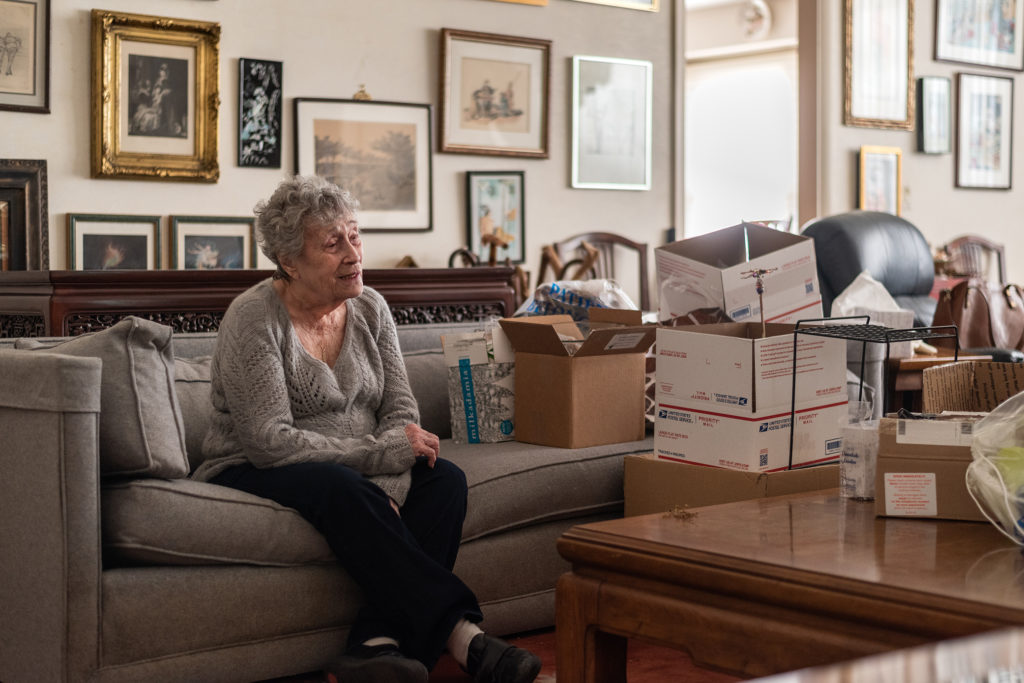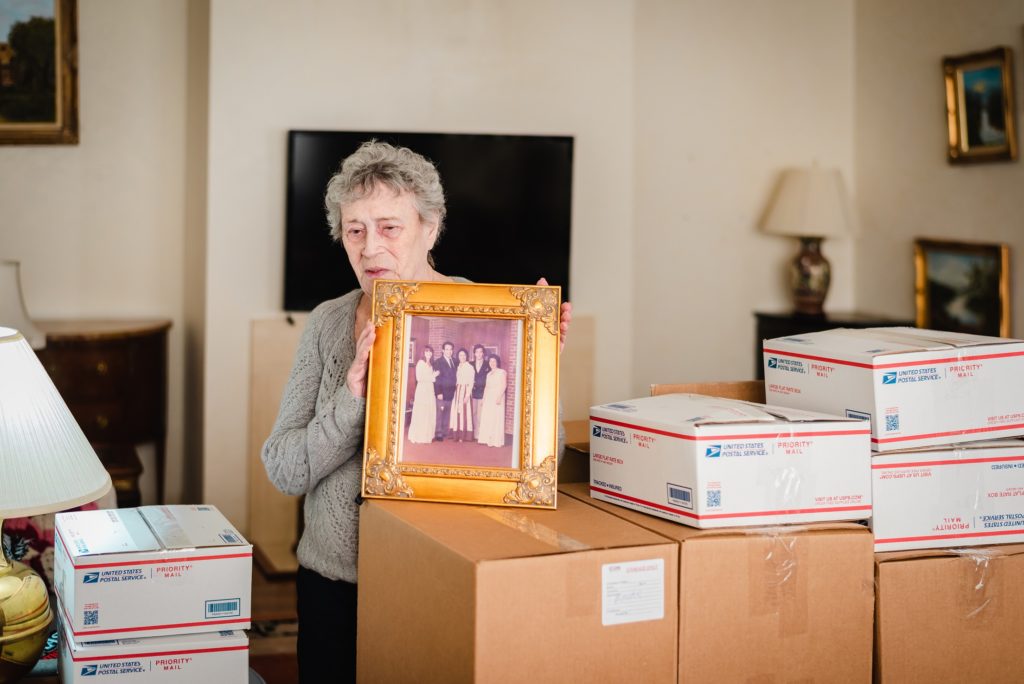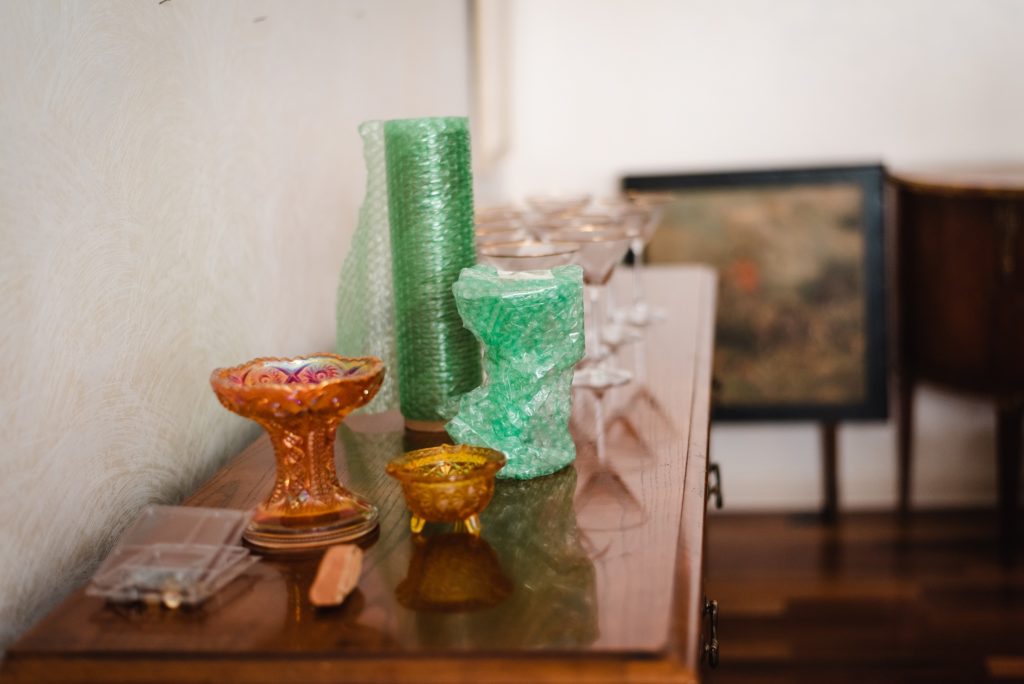Everything Changes: Widow Tackles Loss, Financial Woes with Help From United Way, Partners
Published on December 19, 2022 in Crisis Relief

![]() Click here for an audio version of this story.
Click here for an audio version of this story.
As Ginger Penfil sat down to balance her checkbook – reconciling the stack of mounting bills against the account’s remaining funds – her heart sank into her belly.
“I was in disbelief, really,” she said. “Shocked.”
The financial and emotional shocks had stacked up against Ginger and her husband, Robert, over the past several years. First, after years of investing in their home, they found out the seller didn’t own the title.
Then came Robert’s cancer diagnosis. And the steep out-of-pocket costs for his medication.
One of his medications cost $2,300 a month,” Ginger said. “It was unmanageable.”
As Robert grew sicker, the couple’s carefully budgeted retirement savings dwindled. When they fell behind on rent, the landlord imposed steep late fees and additional fines. The self-described “tough broad” was out of options. Ginger needed help – and fast.
“I’m 84 – I’ve been around for a long time. I’m educated and I still had no idea where to go for help or who to call,” Ginger said, her voice rising with the characteristic Jewish and Italian inflections friends and family say they know her for. “If I can’t figure it out, how the hell can anyone else figure it out?”
Finding help
Eventually Ginger reached out to The Shul, a synagogue in West Bloomfield, for help. United Way for Southeastern Michigan funded The Shul through a Basic Needs Safety Net Grant in 2022. The grants, which cover immediate and emergency food and shelter assistance, distributed $4,407,521 in funding to 68 organizations across southeast Michigan this year.
“Even before the pandemic, nearly 40 percent of households in our region were struggling to afford their basic needs,” said Emily Mueller, director, basic needs at United Way for Southeastern Michigan.
“United Way’s safety net grants provide flexible funding to our community partners to help them fill gaps and remain responsive to evolving community needs in the areas of emergency food, housing and health care. Through these grants we fund organizations of all different sizes that are serving a diversity of populations and groups. There’s a real intentionality to make sure we’re working to strengthen the safety net for everyone.”
When Ginger called The Shul, it was Education and Program Director Itty Shemtov who answered.
After listening to Ginger and Robert’s story, Itty was determined to help. Days later, volunteers from The Shul delivered a food box with traditional Jewish holiday foods like Challah bread and cookies, along with a check to help the pair catch up on rent and other basic needs.
The Shul regularly distributes food and creates specialty boxes around the holidays. The organization saw a dramatic increase in need throughout the COVID-19 pandemic – serving up to 1,000 meals each month. After several months of decline, they’re once again seeing an uptick in need tied to inflation and rising food costs.
“Fortunately, we have programs in place to help,” Itty said. “Great partners like United Way make it possible for us to provide both long-term and emergency assistance to individuals and families in need.”
When people like Ginger who are always on the giving end suddenly find themselves needing help, it can be a devastating and difficult road to navigate.
It’s heartbreaking,” Itty said.
When Itty met Ginger, she couldn’t predict just how heartbreaking the rest of the journey would be.
A life well-lived

After 67 years of marriage, Robert succumbed to cancer in early October.
Weeks later, Ginger and their daughter Julie removed pictures and art from the walls of the couple’s eclectic home. They sorted items for donation, including food and a set of 12 martini glasses. Photos and Robert’s wood carvings were added to a “keep” pile. The duo had to figure out how to fit a lifetime into boxes small enough to fit in Julie’s hatchback before heading to Julie’s home in Boston.
“I can’t afford this place anymore and my daughter doesn’t want me to be here alone,” Ginger said, her voice cracking under the weight of the thought of a future without the man she calls “my Bobby.”
Robert’s death further devastated Ginger’s already fragile finances. After earning a plentiful living for 40 years as one of the region’s first Jewish female bank owners, and preparing carefully for retirement, it’s not the conclusion she imagined.
“It’s very interesting to always have and then not have,” she said. “I came from a comfortable background — so did my husband, and that’s how our kids were raised.”
Even in retirement, the couple lived comfortably.
“We budgeted carefully,” Ginger said. She handled the couple’s finances.
“We were always able to meet our payments and even save some money to travel. I mean, we weren’t going on international trips anymore, but we could go Up North or go see our grandkids.”
Asked where she would be if she never called The Shul or received assistance from Itty and the organization’s volunteers, Ginger shakes her head.
“You know, I call myself a tough broad, but I was able to be that because my Bobby was the rock behind me,” Ginger said. “I’m not so tough right now.”
“And when I really needed help, they were there. Itty did exactly what she said she was going to do. That doesn’t happen too often.
“Without their help, I certainly would’ve had to leave this house a lot sooner. That would have been devastating for Bobby and me.”
Picking up the pieces

Ginger’s landlord stayed inflexible throughout Robert’s illness.
“My father was in hospice and even once he passed and we were in mourning, she was calling relentlessly – seven or eight times a day – about fees and payments,” Julie said, chiming in on her mother’s behalf.
Julie is working to secure repayment for repairs to the home’s furnace and flood damage that further chipped away at the family’s savings. In the meantime, they’re looking forward to spending time together in Boston during upcoming holidays and birthday celebrations.
It’s time that matters most to Ginger these days. And now, she has a lot more time to spare.
Ginger plans to spend time at The Shul when she returns to Michigan this spring to find a new apartment. The organization hosts events throughout the year to inspire a sense of hope and community. The group also helps organize Menorah in the D, an event sponsored this year by United Way and others.
Menorah in the D welcomes people of all ages, religions and backgrounds to downtown Detroit for a night of celebration.
Unfortunately, the number of antisemitism incidents in recent months has risen to the highest rates seen since the Anti-Defamation League began tracking such incidents in 1979.
“Anytime there’s a targeted attack on an individual or group, it puts the health and wellbeing of the entire community at risk,” said Tonya Adair, chief people, equity, and engagement officer at United Way for Southeast Michigan. “We strive to create communities where everyone can thrive. That means embracing every individual as part of the diverse tapestry that adds vibrancy and strength to our communities.”
At The Shul, it’s deeper than community; it’s family.
“It’s really beautiful – when people move here and don’t have family and friends in the area, The Shul becomes their family,” Itty said.
Ginger is thinking a lot about family these days – still yearning to hear Robert call out his favorite phrases “Oh boy” or “Hey Ging.”
Instead, silence echoes and haunts.
As she packs – pausing to take in the last few vignettes of her former life, she glances toward the bedroom door.
“I look up and I expect him to come walking out of that room any minute,” she said. “Then I realize he’s not coming. I guess everything changes eventually.”
You can help United Way support more safety net services this holiday season and beyond.